#hassan el baroudi
Photo
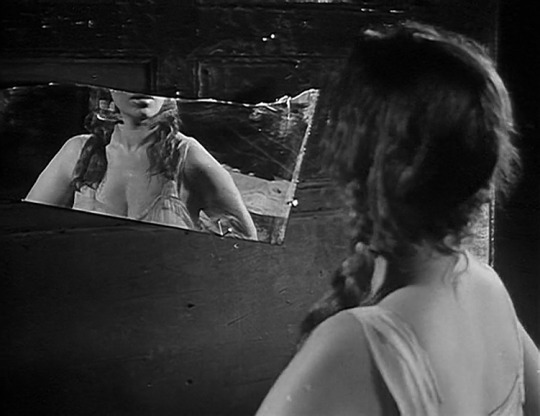
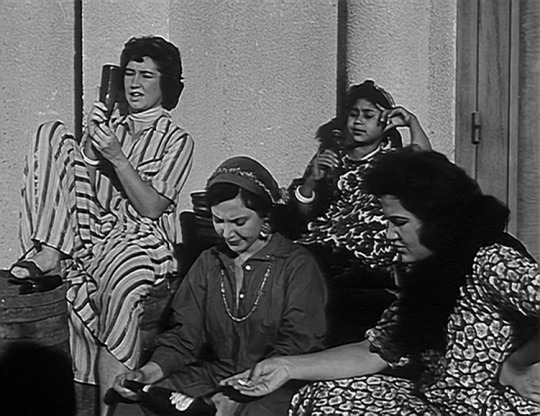

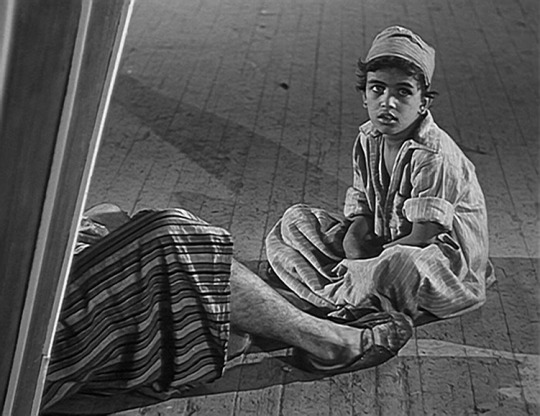

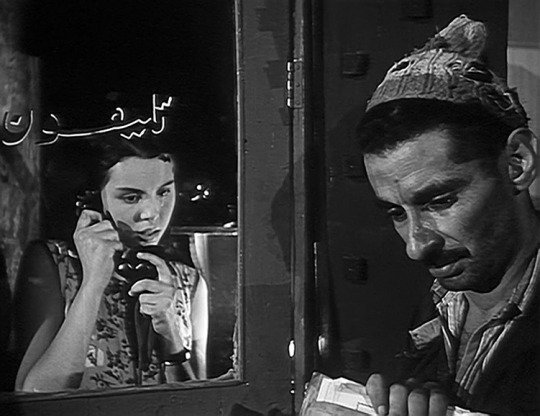

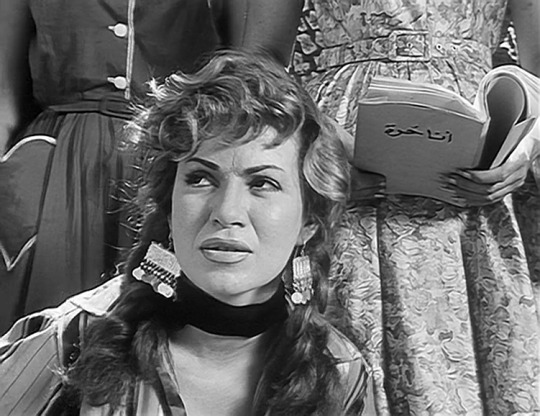

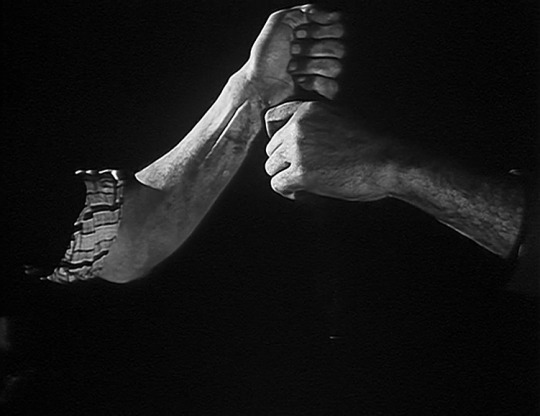
Bab el Hadid (Youssef Chahine, 1958)
#films watched in 2022#Bab el Hadid#Youssef Chahine#Gare Centrale#seis#1958#black and white#Cairo Station#Farid Shawqi#Hind Rostom#Hassan el Baroudi#drama#train#trains#poverty#neorealism#Abdel Aziz Khalil#Alevise Orfanelli#hands#animals#cats#knife#legs#book#books#literature#mirror#mirrors#telephone#photography
205 notes
·
View notes
Photo
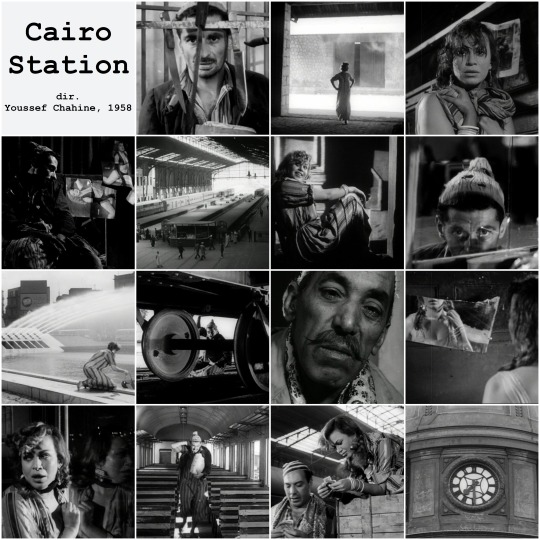
Cairo Station
directed by Youssef Chahine, 1958
#Cairo Station#The Iron Gate#Youssef Chahine#movie mosaics#Hind Rostom#Hassan el Baroudi#Farid Shawqi
15 notes
·
View notes
Photo
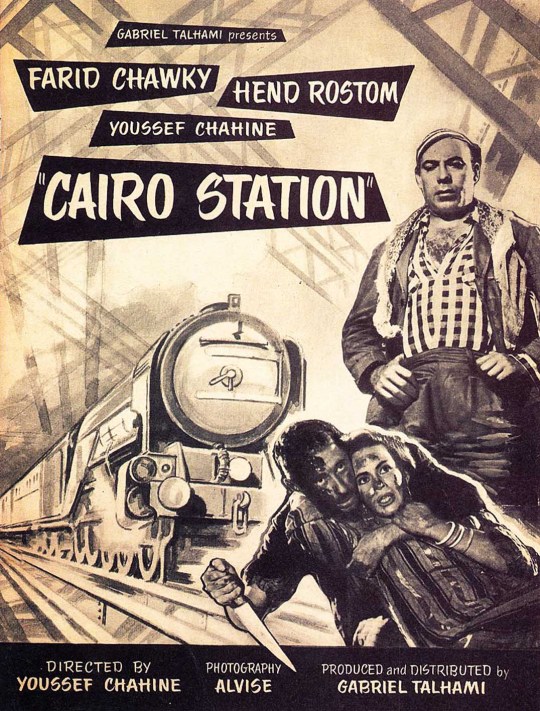
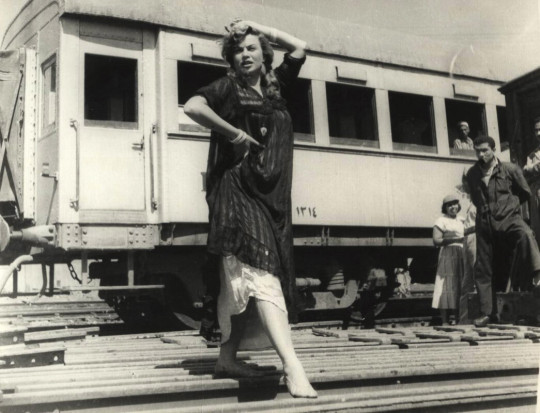
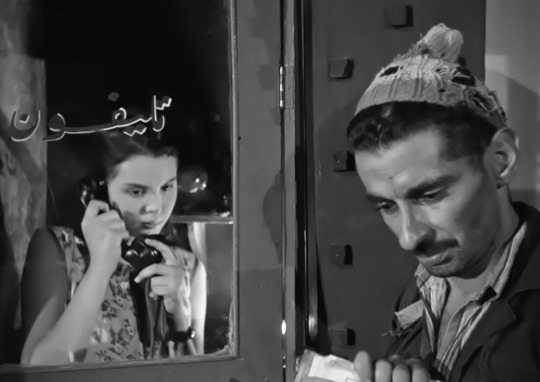
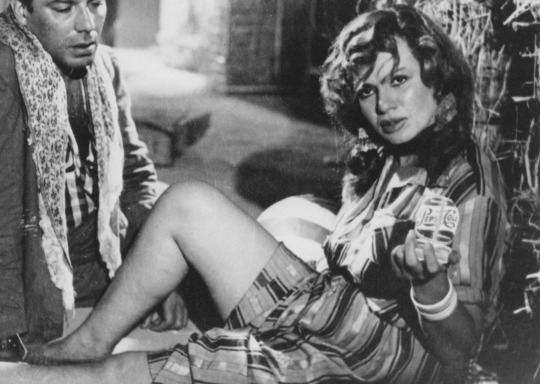
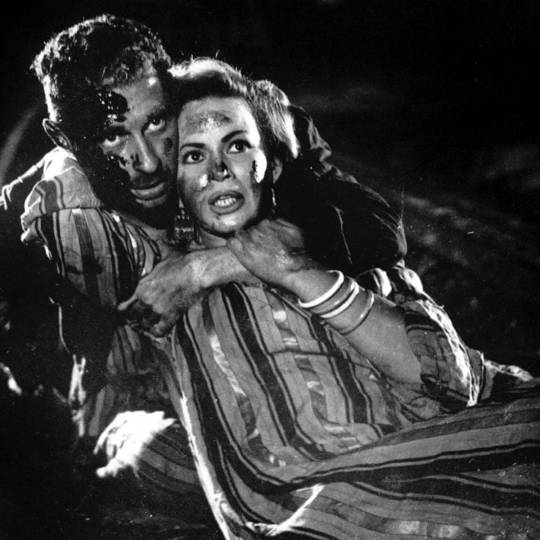
Cairo Station (باب الحديد) (Bab el hadid) (1958) Youssef Chahine
February 15th 2022
#cairo station#bab el hadid#1958#youssef chahine#hind rustum#hind rostom#farid shawqi#hassan el baroudi#the iron gate
6 notes
·
View notes
Text
Our third podcast on Youssef Chahine films, this one on Cairo Station, a combination of Dickensian melodrama, Marxist analysis, neorealist aspirations, film noir techniques, and with a contemporary relevance in its Incel-on-a-rampage theme. A brilliant work, probably the best we’ve seen so far (though those with a penchant for romance might prefer The Blazing Sun or Dark Waters). The podcast can be listened to here:
https://soundcloud.com/user-766042506/the-youssef-chahine-podcast-no-3-cairo-station&visual=false
https://soundcloud.com/user-766042506/the-youssef-chahine-podcast-no-3-cairo-station
https://soundcloud.com/user-766042506/the-youssef-chahine-podcast-no-3-cairo-station
https://soundcloud.com/user-766042506/the-youssef-chahine-podcast-no-3-cairo-station%22&visual=false%22
In the past few podcasts we´ve been noting how wrong wikipedia is in its description of the films so far, and how it is evident from so many of the reviews that many reviewers haven´t seen the films well enough to describe them accurately. An exception to this pattern is this brief description of the film in the Ritrovato catalogue.
https://soundcloud.com/user-766042506/the-youssef-chahine-podcast-no-3-cairo-station
https://soundcloud.com/user-766042506/the-youssef-chahine-podcast-no-3-cairo-station
https://soundcloud.com/user-766042506/the-youssef-chahine-podcast-no-3-cairo-station
https://soundcloud.com/user-766042506/the-youssef-chahine-podcast-no-3-cairo-station
https://soundcloud.com/user-766042506/the-youssef-chahine-podcast-no-3-cairo-station
https://soundcloud.com/user-766042506/the-youssef-chahine-podcast-no-3-cairo-station

Description of Cairo Station from Bologna’s Ritrovato Catalogue
These are excerpts from the film that are described or referred to in the podcast: we. talk about the sensuality in the film and how shocking that must have been in its time
We talk about the conflict between modernity and tradition in relation to this excerpt:
We tak about the film noir elements in a film that has often been described as neorealist and of the extraordinary conceptualisation of shots and use of depth of field, which cna be scene in this excerpt-
Likewise the images below are illustrations of some of the aspects discussed in the podcast, the compositions, the themes of sexual obsession, labour organising, the compositions, the way the frame is peopled, etc.:
Lastly, a description of Chahine and his career from the Ritrovato catalogue:

Introduction to Chahine and his work from the 2019 Ritrovato Catalogue
José Arroyo
The Youssef Chaine Podcast No. 3: Cairo Station (1958) Our third podcast on Youssef Chahine films, this one on Cairo Station, a combination of Dickensian melodrama, Marxist analysis, neorealist aspirations, film noir techniques, and with a contemporary relevance in its Incel-on-a-rampage theme.
#Abdel Aziz Halil#Bologna#Cairo Station#Dark Waters#Farid Shawqui#Hassan el Baroudi#Hind Rostom#José Arroyo#Naima Wasty#Richard Layne#The Blazing Sun#The Youssef Chahine Podcast#Youssef Chahine
0 notes
Photo

MENGAMBIL KESEMPATAN
Bagi banyak pemain sepakbola, usia kepala empat adalah usia yang tepat untuk gantung sepatu dan menghabiskan waktu bersama keluarga tercinta. Tapi ini tidak berlaku bagi sebagian pemain, termasuk pemain satu ini. Essam El Hadary, 44 tahun, kiper timnas Mesir ini masih aktif bermain, baik di level klub (bersama Wadi Degla) maupun di level timnas.
Di usianya yang sudah sangat senior, El Hadary masih terlihat seperti 7-11 tahun ke belakang, yaitu ketika timnas Mesir berada dalam masa kedigdayaan di benua Afrika di bawah komando pelatih Hassan Shehata. Lompatannya masih gesit, tangannya pun masih sigap menghalau berbagai peluang yang mengancam gawangnya. Meski di tahun ini dia gagal mengulang apa yang berhasil dicapainya tiga kali bersama Hassan Shehata, yaitu menjadi juara Afrika, namun dia tetap tampil memukau dan berhasil menyabet gelar kiper terbaik di kompetisi Piala Afrika yang baru saja selesai Minggu malam (5/2) waktu Gabon.
Sebenarnya, di tahun ini Hadary bukan kiper inti. Dia menjadi kiper pelapis (bersama Sherif Ekramy, kiper Al Ahly) dari koleganya, Ahmed El Shenawy, kiper Zamalek,. Malang bagi El Shenawy, di laga pertama Mesir melawan Mali, dia harus ditarik keluar di menit ke-25 akibat cedera yang dialaminya saat mencoba menggagalkan peluang salah seorang pemain Mali. El Hadary—yang diberi kesempatan oleh pelatih Hector Cuper untuk masuk menggantikan Shenawy—pun mencatatkan sejarah sebagai pemain tertua yang pernah bermain di Piala Afrika, dengan usia 44 tahun 2 hari!
Dan sepanjang kompetisi, El Hadary benar-benar tampil layaknya seorang legenda. Dari 6 pertandingan, dia hanya kebobolan 3 kali, dan berhasil menjaga gawangnya dari kebobolan selama 4 pertandingan. Sebuah catatan yang layak diganjar dengan penghargaan sebagai kiper terbaik kompetisi, di usianya yang sudah uzur untuk seorang pesepak bola.
Dari El Hadary, kita belajar bahwa tak selamanya kesempatan itu datang. maka ketika kesempatan itu tiba, memanfaatkannya dengan baik adalah sebuah keharusan.
Hidup ini pun sejatinya adalah sebuah kesempatan bagi manusia untuk terus memperbanyak bekalnya (berupa amal), demi perjalanan panjang yang akan ia tempuh setelah meninggalkan dunia ini.
Teringat kalimat dari mantan Perdana Menteri Mesir, Mahmud Sami Al Baroudi dalam syairnya,
“Segeralah ambil kesempatanmu, dan jangan sampai kehilangannya. Karena tercapainya sebuah kemenangan adalah ketika kita berhasil mengambil kesempatan.”
2 notes
·
View notes
Text
Football funny: Celebrating the World Cup through decades of Egyptian comedy films
New Post has been published on https://funnythingshere.xyz/football-funny-celebrating-the-world-cup-through-decades-of-egyptian-comedy-films/
Football funny: Celebrating the World Cup through decades of Egyptian comedy films
For a month building up to — and during — the 2018 World Cup, in which Egypt is participating for the first time in 28 years, much television programming, especially advertising has brought film stars together with football celebrities.
As it turns out this entertainment formula has existed since the 1930s.
Egyptian football films — comedies, by and large, in which famous footballers appear alongside famous comedians — have proved very popular through the years. Producers and directors have endeavoured to have the best known footballers from the top clubs play themselves whether as main characters or in small parts.
On occasion it angered the relevant club’s supporters, sometimes it was used as an antidote to fanaticism, but the footballer as film star phenomenon has sustained a stereotypical image of the football player since
Some of those films provoked anger for a certain club fans while other films attempted to challenge fanaticism.
Few football films were able to broke the stereotypical image of the football player as it used to be introduced in the screen even when the film star is not a real football player.
But in every case football played an important role in deepening the connection between many film stars and their audience.
The Athlete, 1937
Al-Riyady (The Athlete, 1937), written and directed by Togo Mizrahi (one of the founders of Egyptian cinema since the 1920s), was the first Egyptian football film.
It stars Shalom (1900-1948), a precursor to the great and today much better known 1940s-1960s comedian Ismail Yassin (Yassin too was to appear in a series films with titles that started with his real name).
Shalom starred in most of Mizrahi’s films during the 1930s, and in this feature he appears together with the then renowned football player Al-Sayed Houda, the striker of Al-Ittihad Al-Sakandari Club; Houda’s elder brother was the founder of the club, while his younger brother was another star footballer there.
The film is a comedy about a sandwich seller who comes into a huge inheritance before meeting Houda, who offers to teach him to play football. The film plays to the then growing popularity of Alexandria’s premiere side, which remains the third most popular after Cairo’s two big clubs Al-Ahli and Al-Zamalek.
A Pupil’s Diary, 1962
In Captain Masr (The Captain of Egypt, 1955), written by Kamal Mohamed and directed by Bahaeddin Sharaf, Yassin plays Boshkash, a young man from a poor family who dreams of becoming a famous footballer. But when he realises his dream Boshkash falls for a playful dancer who ends up destroying his career before he leaves her and regains his status; the coquette threatening the champion’s success is one of the most prevalent themes in Egyptian football films.
Another Captain Masr, produced in 2015 — based on an original story by Omar Taher, directed by Moataz Al-Touni and featuring such popular comedians as Hassan Hosni, Edward, Bayoumi Fouad and Ali Rabie — is the story of Kamal Naguib (Mohamed Imam), an aspiring young footballer who (instead of a playful dancer) is obstructed by an accident that sends him to jail, where he forms a football team that ends up beating all prison teams from all over the world. It grossed a remarkable LE15 million at the box office.
The conventional story of a successful football player whose relationship with a playful woman negatively impacts his career before he manages to return to the straight and narrow, Hadith Al-Madina (Talk of the Town, 1964), written by Mohamed Othman and directed by Kamal Atteya, was an attempt at a non-comedy football film with a real footballer as the main character.
The star of the film is Essam Bahig, who was a winger for Zamalek and the national team that won the 1959 Africa Cup of Nations. Alongside Bahig and such real-life athletes playing themselves as Ahly forward Taha Ismail, Zamalek defender Hanafy Bastan, Ahly goalkeeper Adel Haikal and the legendary commentator Mohamed Latif, the film features some of the most prominent film stars of the time including Samira Ahmed, Shwikar, Mohamed Al-Ezaby and Sohair Zaky.
Comedy superstar Adel Imam’s string of football films starts with Al-Shayatin wel Kora (The Devils Play Football, 1973), written by Bahgat Amar and directed by Mahmoud Farid. It is a kind of Romeo and Juliet story (starring Hassan Youssef and Shams Al-Baroudi) in which the two families’ enmity results from them supporting two rival sides.
The Devils Play Football, 1973
Another star, Mohammed Sobhy, established himself as a film comedian, having been a stage actor, with Uncle Zizo Habibi (Zizo, My Beloved Uncle, 1977), a story by Youssri Al-Ibiari written by Abdel-Hayy Adib and directed by Niazi Mostafa. Zizo’s physical weakness makes him the butt of everyone’s jokes, but he dreams of becoming a football star — if only to please his nephew Samir.
The film was shot on Al-Ahly Club grounds and Sobhi took Ahly striker (later coach and manager) Abdel-Aziz Abdel-Shafi’s permission to use his nickname, Zizo for the character — as Abdel-Shafi himself recently explained in a television interview.
Written by Ali Al-Zorqani and directed by Mohamed Abdel-Aziz, Ragul Faqad Aqluh (Dad Lost his Mind, 1980) stars Adel Imam as Zizo and Ahly goalkeeper Ekrami (as himself), two Ahly footballer brothers whose father, a businessman (Farid Shawqi) is about to leave their mother (Karima Mokhtar) for a younger woman (Sohair Ramzy).
Zizo abandons his fiancee and seduces the young woman in order to save his parents’ marriage. The film also features the voice of the famous commentator (as well as Ahly player and manager) Ali Ziwar.
Zizo, My Beloved Uncle, 1977
This was Ekrami’s first silver-screen appearance but it was followed by three others including Ya Rab Walad (A Boy Child, Amen, 1984), featuring Farid Shawqi and Karima Mukhtar as the father and mother again.
Written by Faisal Nada and directed by Omar Abdel-Aziz (who was the assistant director on Ragul Faqad Aqluh), it is the story of a self-made wood merchant who has three daughters and no sons. All three daughters bring indolent husbands to live with them at the father’s expense, and they scheme to obtain as much of his wealth as possible until it appears that the mother is pregnant. Together with Samir Ghanem and Ahmed Rateb, Ekrami plays one of the husbands.
The film also features famous Ahly players including midfielder Magdi Abdel-Ghani, striker Gamal Abdel-Hamid, defender Hossam Al-Badri and goalkeeper Ahmed Shubair.
Written by Farouk Sabry and directed by Ahmed Fouad, 4-2-4 (1981) is another landmark of the genre with an all-star cast including Samir Ghanem, Younes Shalabi and Lebleba as well as singer Ahmed Adaweyah.
Shalabi plays the son of a football-crazed factory owner, heir to a football team established by his father who must manage it to keep the legacy alive even though he has no interest in football; it involved a critique of the behaviour of footballers once the become famous.
Dad Lost His Mind, 1980
Written by Wahid Hamed and directer by Samir Seif, Gharib fi Baity (A Stranger At My House, 1982) stars the great actors Nour El Sherif and Soad Hosny — usually non-comic — alongside such comedians as Hassan Mustafa, Nabila Al-Sayed, Wahid Seif and George Sidhom and Captain Mohamed Latif.
Based on Herbert Ross’s The Goodbye Girl (1977), it is the story of Upper Egyptian footballer Shehata Abu Kaff (Al-Sherif), who on moving to Cairo to play for Zamalek ends up forcibly sharing a flat with the single mother played by Hosni (in an act of fraud the flat was sold twice, to both of them). Seif’s first comic feature after four action films, the film was supposed to star the Ahly striker Mahmoud Al-Khatib — Egypt’s most famous footballer and winner of the France Football Award for best African player — instead of Al-Sherif, but Al-Khatib, but Al-Khatib changed his mind at the last minute, fearing for his popularity.
In a recent TV interview Al-Khatib said he was offered a number of roles at the time before, feeling his gift was to play, he decided to “close the cinema door forever”.
In 2005 the famous pop singer Tamer Hosny, playing a taxi driver, established himself as a film star in Sayed Al-Atefy (Sentimental Sayed, 2005), written by Belal Fadl, directed by Ali Ragab and starring Abla Kamel, Nour, Zeina, Talaat Zakareia, Wahid Seif, Nashwa Moustafa and Lotfy Labib.
The film has no football players as such, but Kamel who plays Sayed’s mother Hanifa is an Ahly supporter who wishes her son could be a football player. With Hanifa chanting against Ahly arch-rivals Zamalek (reminding them of their 2002 defeat to Ahly by six goals), the trailer prompted a boycott of the film.
Fadl commented on the event saying football was “the poor Egyptians’ source of happiness”.
A Stranger at My House, 1982
In Al-Zamahlaweya (2008), a word that combines Zamalkaweya with Ahlaweya (referring to Zamalek and Ahly supporters, respectively), director Ashraf Fayek proposed a reconciliation with seven of the most famous players including Gamal Hamza, Khaled Bibo, Mohamed Shawqi, Essam Al-Hadari, Amr Zaki and Hossam Al-Badri — all of whom were Ahly and Zamalek players and often rivals in the Cairo League. Another critique of fanatical football supporters, it is another West Side Story-type film.
The following year saw that rarity: a serious football film in which there is no playful woman character. Al-Alami (World-class, 2009) is the story of an Egyptian player who manages to make a name internationally after a hardship-filled journey.
Its writer Yassin Kamel’s debut and its director Ahmed Medhat’s second film, it starred first-timer Youssef Al-Sherif and featured famous footballer appearances including Ahmed Hossam, Ibrahim Said, Sayed Muawwad, Ahmed Fathi and Hesham Yakan. It had mixed reviews and brought in modest revenues, but it lives on as an attempt to do something different.
The Captain of Egypt, 2015
In filmmaker Kamla Abu-Zekri’s Wahed-Sefr (One-Nil, 2009), written by Mariam Naoum, the action and the fates of the characters are connected with the 2008 African Nations Championship final, in which Egypt beat Cameroon 1-0.
Starring Elham Shahin, Khaled Abul-Naga, Nelly Karim, Ahmed Al-Fishawi, Zeina and the late Hussein Al-Imam, Wahed-Sefr is not strictly speaking a football film, but it is an eloquent comment on the presence and the popularity of the sport in Egyptian lives.
It won the Muhr awards for cinematography and screenplay at the 2009 Dubai Film Festival and the Horus award for best director at the 2010 Cairo National Festival.
The most recent football film was Eyal Harrifa (Professional Guys, 2015), written by Sayed Al-Sobki and directed by Mahmoud Selim. A purely commercial endeavour, it features neither film stars nor footballers.
With much inner-city humour and a line of popular singers and dancers (Saad Al-Saghir, Mahmoud Al-Leithy, Boussy, Sofinar, Soliman Eid, Mahmoud Lotfy and Badrya Tolba), it managed to gross LE12 million in one of the weakest Eid seasons ever (when the highest grossing film, Ahwak, brought it no more than LE22 million).
This article was first published in Al-Ahram Weekly
For more arts and culture news and updates, follow Ahram Online Arts and Culture on Twitter at @AhramOnlineArts and on Facebook at Ahram Online: Arts & Culture
Search Keywords:
Short link:
Source: http://english.ahram.org.eg/NewsContent/5/32/303184/Arts–Culture/Film/Football-funny-Celebrating-the-World-Cup-through-d.aspx
0 notes